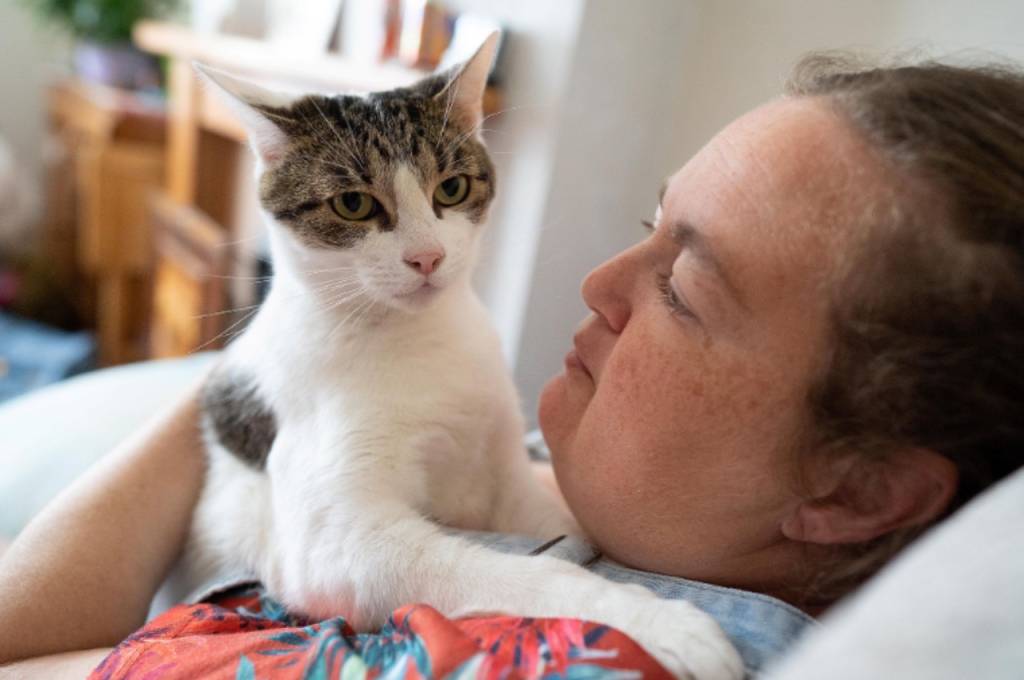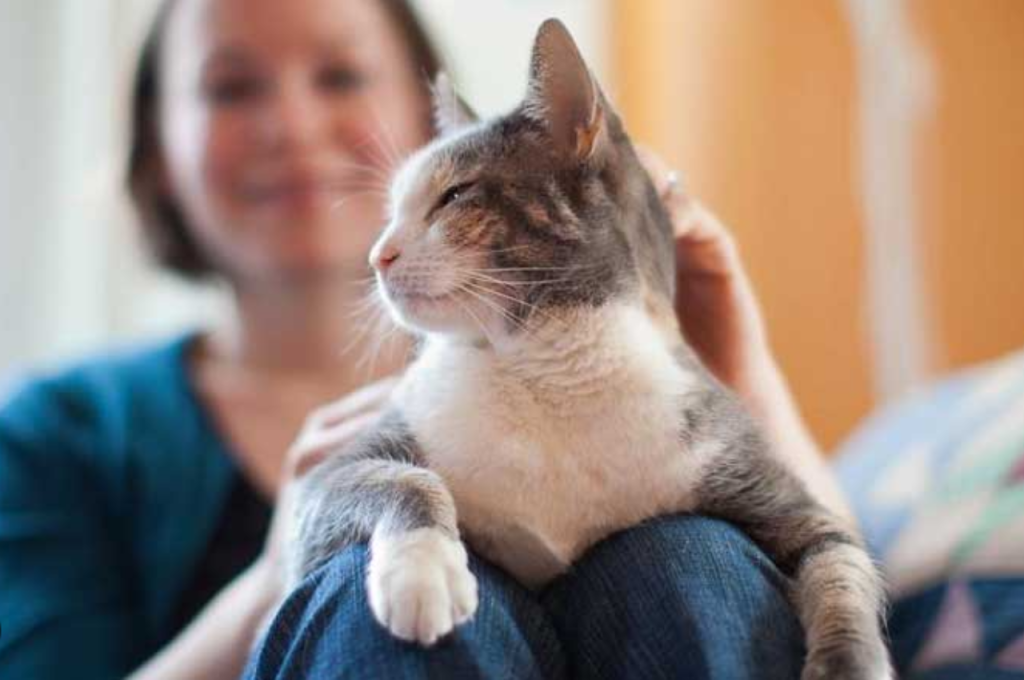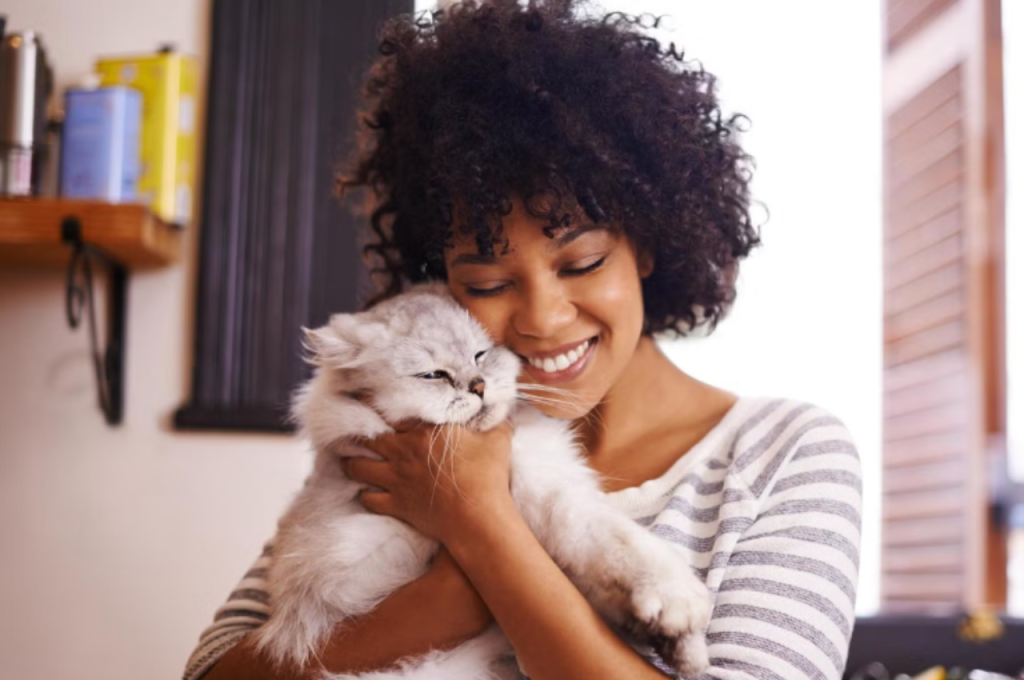Yes, cats can be loyal to one person, forming strong bonds with their preferred human. Cats are known for their independent nature, but they can show loyalty and affection towards a specific individual.
This attachment often develops through daily interactions, such as feeding, playing, and spending quality time together. While cats may show different levels of loyalty to various family members, they can exhibit a deep connection with their chosen person, seeking comfort and companionship.
Understanding a cat’s behavior patterns and cues can help strengthen this bond and create a lasting relationship built on trust and love.
1. The Nature of Feline Loyalty
Feline loyalty is a fascinating aspect of cat behavior that often sparks curiosity and debate among pet owners. Unlike dogs, which are known for their unwavering loyalty to their human companions, cats exhibit loyalty in more subtle and complex ways. Understanding the nature of feline loyalty can shed light on the unique bond between cats and their caregivers.

1.1. Understanding the concept of loyalty in cats
Loyalty is a trait often associated with dogs, but understanding its manifestation in cats reveals a more nuanced and complex picture of feline behavior. While cats may not display loyalty in the same overt ways as dogs, they form deep and meaningful bonds with their human companions that are rooted in trust, security, and mutual affection.
1.2. Examining the factors that determine feline loyalty
When it comes to cats, loyalty can be a complex and intriguing aspect of their behavior. Understanding the concept of loyalty in cats is essential in unraveling their mysterious nature. Loyalty in cats is often displayed through their actions and behavior towards their caregivers.
Cats may show loyalty by seeking out their chosen person for companionship and comfort. The factors that determine feline loyalty include the quality of care they receive and their unique bond with their human. Factors like consistent feeding, playtime, and affection play a role in fostering a cat’s loyalty.
- Quality of care
- Bond with their human
- Consistent feeding
- Playtime
- Affection
A cat’s loyalty can also be influenced by their personality traits and past experiences.
Understanding these factors can help strengthen the bond between a cat and their human companion.
2. Bonding Between Cats and Humans
Cats are known for forming strong bonds with their owners. Let’s explore the unique connection between cats and humans.
2.1. Exploring the Unique Bond Between Cats and Their Owners
Cats form unique bonds with their owners through daily interactions and routines. Their affectionate nature manifests in gentle head-bumps, purring, and kneading.
2.2. The Role of Trust and Companionship in Cat-human Relationships
Trust and companionship are essential in fostering strong cat-human relationships. Cats rely on their owners for comfort, safety, and companionship. Building trust with a cat involves patience, consistent care, and love. Once trust is established, cats exhibit loyalty and deep affection towards their chosen human.
3. Cats and Territory
Understanding the bond between cats and their owners requires delving into the fascinating world of feline territory. Cats are instinctively territorial creatures, and their loyalty is often influenced by their innate territorial instincts and environmental factors. In this section, we will explore how a cat’s territorial instincts affect their loyalty and how the environment can influence their allegiance.
3.1. How A Cat’s Territorial Instincts Affect Loyalty
A cat’s territorial instincts play a significant role in their loyalty to one person. Cats mark their territory using scent glands located on their face, paws, and tails. By rubbing against objects and people, they establish their presence, claiming ownership.
When it comes to loyalty, cats often view their owners as an extension of their territory. They may display affection towards their trusted person and defend them if they perceive a threat. This loyalty stems from the sense of security and safety they associate with their familiar surroundings and the people within them. However, it’s important to note that the degree of loyalty may vary from cat to cat, as each feline has its unique personality.
3.2. The Influence of Environment On Feline Allegiance
The environment in which a cat lives also plays a crucial role in determining their allegiance. Cats that are raised in stable and loving homes with consistent routines are more likely to develop a strong bond with their owners. The provision of a safe and enriched environment with ample opportunities for play and exploration further enhances the bond between the cat and the owner.
On the other hand, cats that have experienced trauma or have been relocated frequently may have difficulty forming strong attachments. Changes in the environment can also trigger stress, leading to behavioral issues that can affect the cat’s loyalty. Owners need to be patient, and understanding, and provide a stable environment to help build trust and foster a loyal relationship with their feline companion.
4. The Myth of One-person Loyalty
There’s a common belief that cats are exclusively loyal to one person, often portrayed as a stereotype in popular culture. However, the reality may surprise many cat owners. Cats are known for their independent nature, but their loyalty can extend to multiple individuals.

4.1. Dispelling the Misconception of Exclusive Feline Loyalty
Contrary to popular belief, cats do not always restrict their loyalty to just one person. The notion of exclusive loyalty to a single individual may stem from a misunderstanding of feline behavior. Cats can form strong bonds with multiple family members, demonstrating loyalty in various ways.
4.2. Examples of Cats Displaying Loyalty to Multiple Individuals
Several examples highlight how cats show loyalty to different people in their lives. Whether it’s seeking affection from one family member or seeking comfort from another, cats display their loyalty through unique interactions with each individual. This loyalty is not limited to just one person, debunking the myth of singular feline loyalty.
5. Emotional Attachment in Cats
Many cat owners wonder about the level of loyalty their feline companions have. In this section, we will explore the emotional attachment in cats and how it impacts their loyalty to their human caregivers. Understanding the emotional capacity of cats and how emotional connections impact loyalty is vital to comprehend the depth of the bond between cats and their owners.
5.1. Understanding the Emotional Capacity of Cats
Cats are often known for their independence, but they are not devoid of emotions. Research has shown that cats have the capacity for complex emotions such as affection, anxiety, and even jealousy. While their emotional range may differ from that of dogs, it’s essential to acknowledge that cats form strong emotional attachments with their human counterparts.
5.2. How Emotional Connections Impact Loyalty
Emotional connections play a significant role in how loyal cats are to their owners. Cats demonstrate loyalty when they feel secure and loved, which is influenced by the emotional bond they share with their humans. This bond is cultivated through consistent care, attention, and positive interactions, ultimately fostering a strong sense of loyalty in felines toward their caregivers.
6. Signs of Feline Loyalty
Understanding whether cats are loyal to one person or not can be a complex question. While feline loyalty can vary from one cat to another, certain behaviors and signs indicate a cat’s loyalty. By recognizing these behaviors, you can gain a deeper understanding of your cat’s bond with you and the significance of vocalization, purring, and physical affection in expressing their loyalty.
6.1. Recognizing Behaviors that Indicate A Cat’s Loyalty
When it comes to deciphering a cat’s loyalty, it’s essential to pay attention to their behaviors and subtle cues. Here are some behaviors that often indicate a cat’s loyalty:
- Staying close to you: Loyal cats often prefer to stay close to their chosen person. They may follow you around the house or curl up beside you while you work or relax.
- Displaying relaxed body language: A content and loyal cat will exhibit relaxed body language, with a calm posture, gentle tail flicks, and soft eyes. Their body language reflects their trust and comfort around you.
- Showing affection: Loyal cats may express their loyalty through physical affection. This can include rubbing their head against you, kneading you with their paws, or seeking out your lap for cuddles and attention.
- Bringing you “gifts”: Cats may bring you small presents, such as toys, dead prey, or even random objects. While it may seem unusual to humans, this behavior is a way for cats to show their loyalty and provide resources for their chosen person.
6.2. The Significance of Vocalization, Purring, and Physical Affection
Vocalization, purring, and physical affection are important aspects of a cat’s communication and can convey their loyalty towards you. Here’s why these behaviors hold significance:
- Vocalization: Cats may use different vocalizations, such as meows, trills, chirps, and purrs, to communicate with their favorite person. Pay attention to the different tones and sounds your cat makes, as it can indicate their level of comfort and loyalty.
- Purring: One of the most recognizable sounds cats make is purring. While purring can signify contentment, it also acts as a way for cats to bond and show their loyalty. Take note of when your cat purrs, as it’s often a sign of their affection towards you.
- Physical affection: Cats display their loyalty through physical affection, including head-butting, rubbing against your legs, and kneading. These actions demonstrate their trust in you and their desire to create a stronger bond.
Understanding the signs of feline loyalty enables you to nurture and strengthen the bond you share with your cat. By recognizing and appreciating the behaviors cats use to express their loyalty, you can cultivate a loving and trusting relationship with your feline companion.
7. Building A Strong Bond With Your Cat
Building a strong bond with your cat is essential in fostering loyalty and trust between you and your feline companion. By understanding your cat’s behavior and needs, you can create a nurturing environment for a fulfilling cat-human relationship.

7.1. Tips for Fostering Loyalty and Trust With Your Feline Companion
- Spend quality time: Engage in interactive play sessions and cuddle time to strengthen your bond.
- Provide a safe space: Ensure your cat has a quiet and comfortable area to retreat to.
- Positive reinforcement: Use treats and praise to reward good behavior and build trust.
7.2. Creating A Nurturing Environment for A Loyal Cat-human Relationship
By offering love, patience, and understanding, you can establish a strong foundation for a loyal bond with your cat.
8. Cultivating Mutual Respect and Attachment
Cultivating mutual respect and attachment with your cat is key to fostering a strong bond.
8.1 The Importance of Respect in Maintaining Feline Allegiance
Respect your cat’s space and boundaries to earn their trust and loyalty.
8.2 Activities and Interactions that Promote A Strong Cat-human Bond
Engage in play sessions and daily grooming routines with your cat.
- Provide stimulating toys and interactive games for mental and physical exercise.
- Establish a routine for feeding, playtime, and cuddles to create a sense of security.
Conclusion
To sum up, cats can form strong bonds with their human companions. While their loyalty may not mirror that of dogs, cats exhibit their unique ways of showing affection and attachment. Understanding their personality traits, and providing love, care, and a sense of security can nurture a deeper and lasting bond with your feline friend.
Embrace the special connection and enjoy the companionship that cats can offer.
